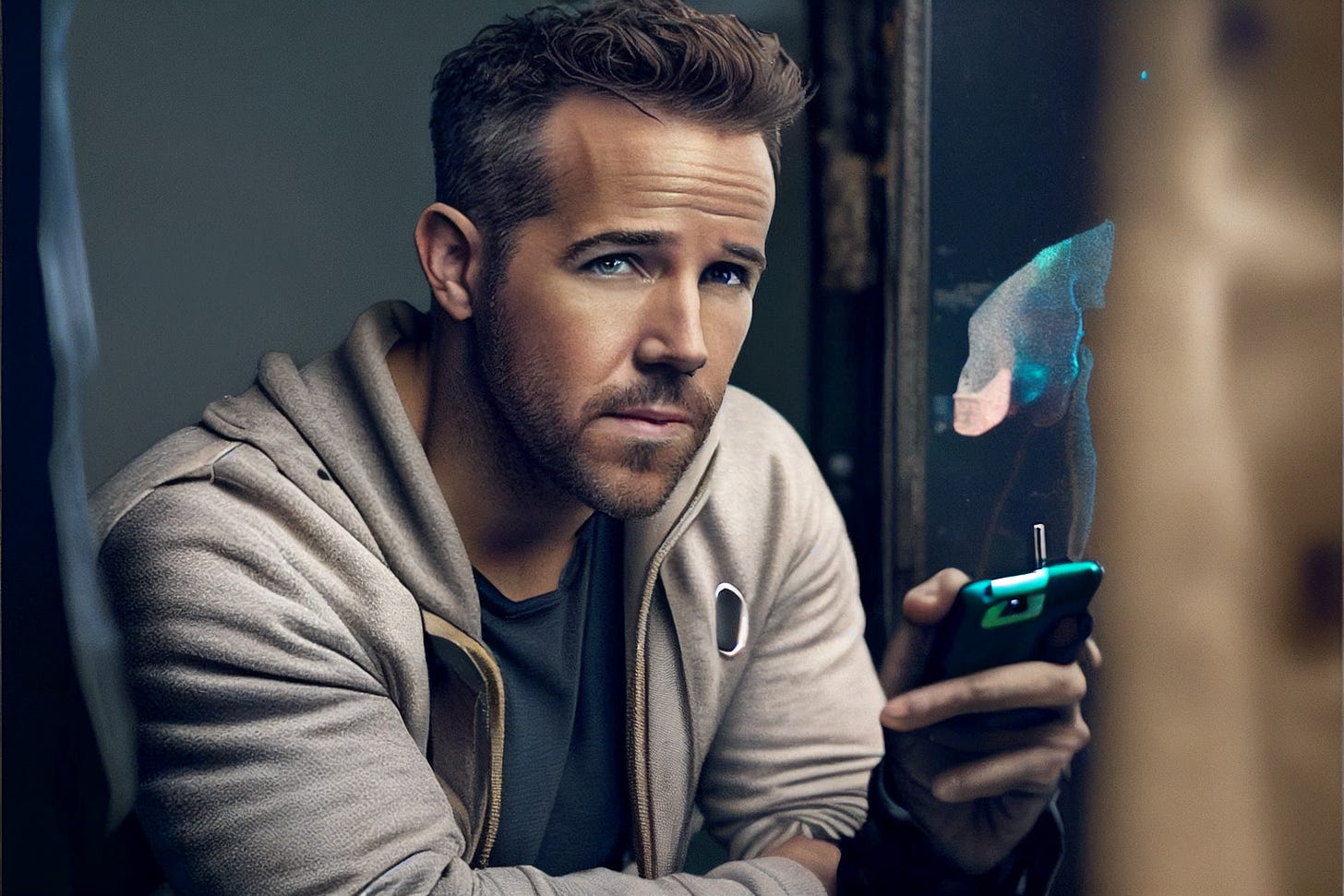Ryan Reynolds and the 'terrifying' advent of AI advertising campaigns #Ai
A twice-weekly, curated roundup of the most interesting stories in the world of AI-generated art.

Do brands own the copyright on AI-generated ads?
With brands eager to use AI art in their advertising campaigns, the issue of whether these images have copyright protection is still a huge unanswered question, writes Chris Sutcliffe in The Drum.
“The general consensus in the legal world seems to be that where AI is a mere tool in the hands of a human, the output may be protectable. Where the AI creates without or with very limited human guidance or intervention, however, the output is unlikely to be protectable. There is no standard yet on ‘how much’ human intervention is needed for the output to be deemed protectable and, indeed, this will likely be a matter for the courts to assess.” ~ Sophie Goossens, a copyright lawyer for the international law firm Reed Smith.
In fact, the U.S. Copyright Office has routinely rejected copyright protection for AI-generated art. However, there is a case in federal court here in Washington, DC that challenges the U.S. Copyright Office’s decision to deny protection to AI-art. This week, the plaintiff in that case, AI-scientist Stephen Thaler, filed a motion for summary judgement, which basically asks the court to rule in his favor without going to trial. (I’ll post more about this case and Thaler’s arguments later today).
Speaking of AI Ads
Actor Ryan Reynolds, who we can only hope is as cool and funny in real life as he is on the screen, asked ChatGPT to write ad copy in his “voice” for a Mint Mobile commercial. The results are, as Reynolds puts it, “mildly terrifying.”

The crazy thing is that sooner, rather than later, you’ll be able to create that same commercial on your laptop with an AI-generated Ryan Reynolds.
The Reverse Turing Test
You know an essay is making great arguments when you find yourself shaking your head in approval and saying “yeah, that’s right.” That’s what I found myself doing while reading Maggie Appleton’s piece, The Expanding Dark Forest and Generative AI.
One of the ironies she offers is that we, humans, will soon have to pass a reverse Turing test, meaning that we’ll have to prove that we’re not chat bots, as opposed to the other way around. Are we already there?
Appleton leads design at Ought, a machine learning research lab. She describes herself as sitting at “the intersection of design, anthropology, and programming.”


Here’s an artist with a different take on AI
This reminds me of something I read on LinkedIn recently. The comment (sorry I can’t recall the source): “AI isn’t going to replace you. Someone using AI will replace you.”
For discussion
New York Times Magazine: AI’s Best Trick Yet Is Showering Us With Attention - Sophie Haigney
Gary Marcus: Is Microsoft about to get the deal of the century? Or is Sam Altman unloading OpenAI at just the right time?
Tech Explore: Artificial intelligence is here, but the technology faces major challenges in 2023 - Cody Mello-Klein
Just for Kicks
eatnorth: Developer uses ChatGPT and Midjourney to create "world's worst restaurant" - Dan Clapson
Tech
ars technica: Microsoft’s new AI can simulate anyone’s voice with 3 seconds of audio - Benj Edwards
NFTs and Digital Art
Forbes: Crypto Punk Mania: The Top 10 NFT Collections Of 2022 - Maria Gracia Santillana Linares
Decrypt: Edward Snowden Pentagon Papers NFT to Be Auctioned Via Live PleasrDAO Show - Jason Nelson
Decrypt: Trump NFT Mania Gets a Very Short Term as Sales Nearly Vanish - Andrew Hayward




